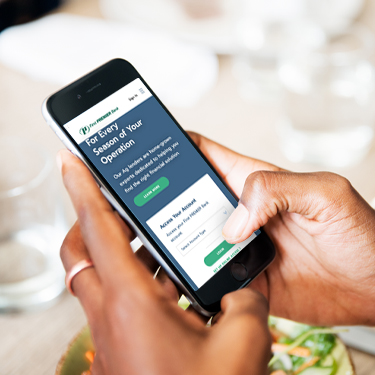
Protecting Yourself Online
Your security is important and First PREMIER Bank goes to great links to protect your financial information and privacy. Here are a few simple things you can also do to help protect your account information. For additional information you can visit these websites: Cybersecurity and Infrastructure Security Agency (CISA), National Cybersecurity Alliance, the Federal Trade Commission (FTC).

Protecting Your Financial Information
- Be attentive to bank scams and phishing, where criminals attempt to trick you into revealing your personal or account information by phone, unencrypted email, text, chat or social media.
- First PREMIER Bank will never request your card, password, pin or secure information in an unsolicited manner.
- Use Multi-factor Authentication on your online accounts. Multi-factor authentication means you need to pass another layer of authentication, not just a username and password, to get into your accounts. Multi-factor authentication can be via text, email or phone call.
- Use a payment application where possible (Apple Pay, PayPal, Samsung Pay) to limit the number of websites you enter your payment information.
- Review your account and identify odd charges - even a small fraudulent charge is significant.
- Memorize your Debit PIN number and/or store it securely and separately from your card.
- Actively lock and unlock lost or stolen debit cards via online or mobile banking.
- Use account spending and balance alerts/notifications to monitor your account for suspicious activity.
- Check your credit report frequently. Sign up for our free Online and Mobile Banking tool, Credit Score. You get access to your real-time score and report in your online and mobile banking.

Protecting Your Personal Information
- Keep personal documents, bank and card statements and credit cards in a secure location.
- Shred documents and papers that contain sensitive information before discarding.
- Never carry your social security card. Only provide the number when justifiably necessary.
- Place outgoing U.S. mail in a secure collection box or U.S. post office mail slot.
- Use firewalls and anti-virus software to protect your computer from hacking and malware.
- Always do the necessary software updates on all your internet connected devices. Many of these updates contain critical security updates. Don't forget routers, modems and any other smart devices.
- Consider using different emails for accounts.
- Always use a passcode lock on your mobile or tablet device. When possible, use fingerprint or facial ID authentication.
- Make sure you've configured each social media site so that your posts aren't public. Think twice before revealing too much in a post since your friends might share it with others.
- Whenever you connect to the Internet using a free or public Wi-Fi network, use a virtual private network or VPN. This will add a level of security and privacy.
- Clear your browser cache. Your internet browsing history - known as your cache - could point to your home address, family information or other personal data.

Be Scam Aware
Your best defense is being cautious!
- Check all emails carefully before clicking on any links or opening any files.
- Avoid clicking on links in text messages from unknown senders and do not reveal personal or financial information in email.
- Don't respond to texts, phone calls or email solicitations asking for your pin, account number or social security number.
- Don't click on unsubscribe links on emails you didn't sign up to receive. Report it as spam and delete it.

Password Best Practices
- Create passwords with more than eight characters. Include a mix of capital and lowercase letter, symbols and punctuation.
- Use different passwords across devices and services.
- Do not include guessable words, like "password”, family or pet names.
- Never use your birthdate or phone number as your password.

Tools to Help You
Proactively utilize First PREMIER Bank's tools & resources:
- FREE Online and Mobile Banking helps you actively access and monitor accounts.
- FREE Electronic Statements help reduce mail fraud while giving a robust online archive and PDF Downloads.
- FREE Bill Pay helps reduce mail fraud, allowing you to send payments more securely and expediently.

Safeguard Business Accounts
Businesses should consider these additional products:
- Use Positive Pay, a powerful, affordable fraud monitoring solution for small and large businesses.
- Leverage ACH Online to streamline, automate and secure employee payroll and vendor payments.
- Consider Remote Deposit for depositing large numbers of checks securely, accurately and efficiently.

